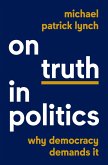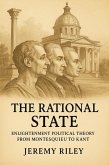Drawing on thinkers from Plato, Aristotle, and Augustine to Gramsci, Foucault, and Nussbaum, Tennakoon explores how leaders project their inner worlds into the structures of society and state. History demonstrates that leadership is not merely the exercise of power but the unfolding of interior life into the public realm: Socrates' pursuit of ethical truth, Marcus Aurelius' Stoic reflections, Gandhi's disciplined nonviolence, Mandela's resilience and reconciliation, Lincoln's moral conscience. Conversely, destructive ambition and unrestrained impulsesfrom Nero to the presentreveal how societies may be led to ruin when hidden depths remain unexamined.
The book also situates these reflections in postcolonial contexts, with Sri Lanka as a case study. Here Tennakoon examines how truth and falsehood, memory and forgetting, justice and injustice, converge in the making of postcolonial states. The analysis reveals how epistemic crisesrooted in colonial legacies and global entanglementscontinue to challenge the moral and political foundations of sovereignty.
At once scholarly and accessible, The Soul of the State weaves together philosophy, religion, political theory, and cultural history. It calls readers to see politics not merely as administration or policy, but as a moral and spiritual endeavor grounded in interiority. By illuminating the unseen forces that shape leaders and nations, Tennakoon offers a fresh vision of political philosophy in a global ageone that speaks to scholars, students, and all who seek to understand the fragile and decisive space where human consciousness meets collective destiny.
Dieser Download kann aus rechtlichen Gründen nur mit Rechnungsadresse in A, B, CY, CZ, D, DK, EW, E, FIN, F, GR, H, IRL, I, LT, L, LR, M, NL, PL, P, R, S, SLO, SK ausgeliefert werden.









